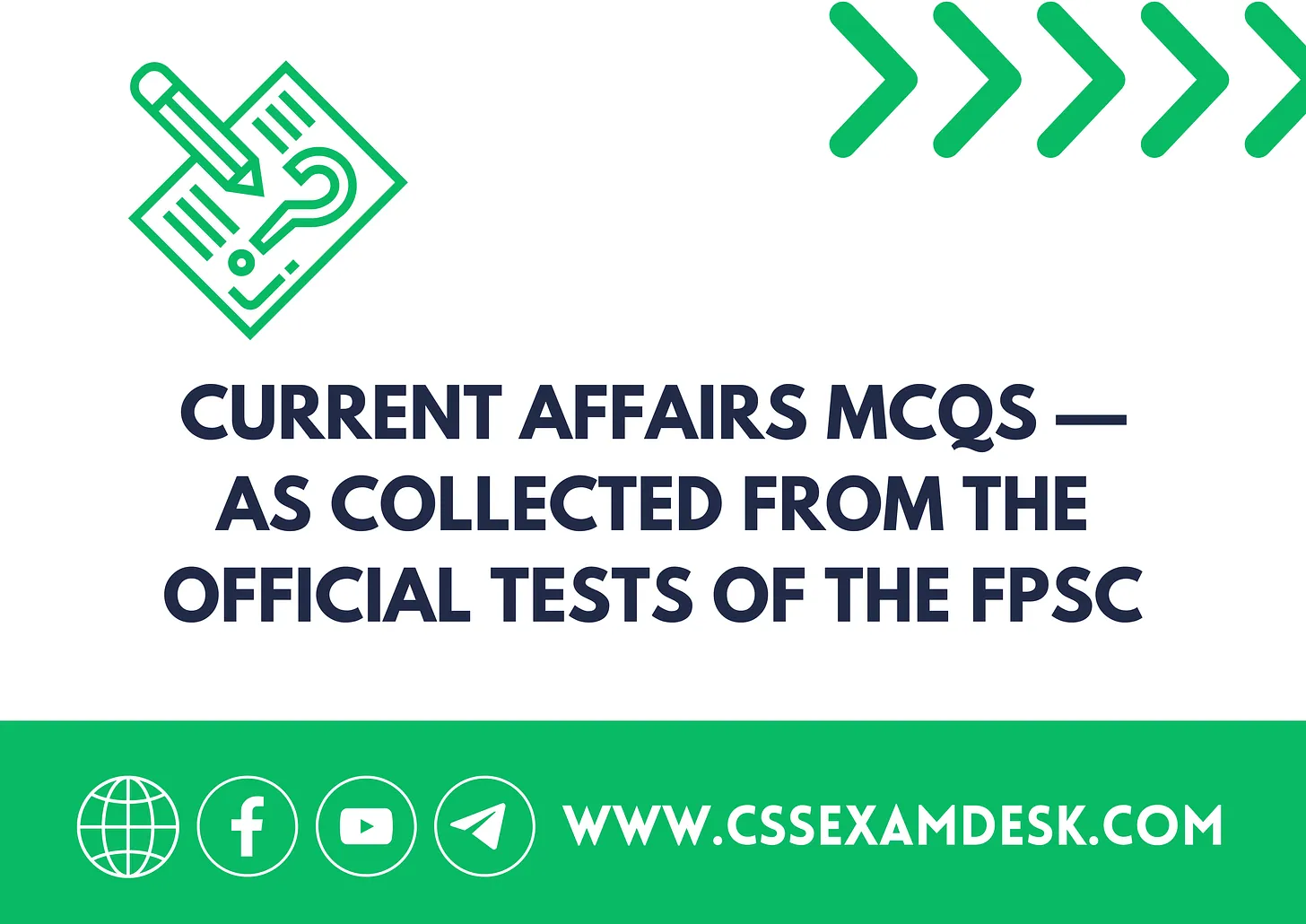CSS 2013 General Science and Ability MCQs
Question 11. Which month of a calendar year can lack a new moon? (CSS 2013)
-
December
-
February
-
May
-
None of these
Explanation — The term ‘month without new moon’ is for the absence of the new moon in a calendar month. This can occur only in February; it happens about every 19 years. When February is without new moon, then the preceding January or December and the following March or April have two new moons.
Question 12. Deuterium differs from hydrogen in having: (CSS 2013)
-
Different atomic number but same atomic weight
-
Different atomic number and different atomic weight
-
Same atomic number but different atomic weight
-
None of these mentioned options
Question 13. One of the following is a water soluble vitamin: (CSS 2013)
-
Vitamin A
-
Vitamin K
-
Vitamin D
-
None of these
Explanation — B−complex (vitamins B group) is a water-soluble vitamin. Also, vitamin C is a water-soluble vitamin. Vitamin A, D, E and K are fat soluble vitamins.
Question 14. Coulomb is the scientific unit to measure: (CSS 2013)
-
Velocity
-
Temperature
-
Mass
-
None of these
Explanation — The coulomb is defined as the quantity of electricity transported in one second by a current of one ampere. The coulomb is the International System of Units unit of electric charge. Under the 2019 redefinition of the SI base units, which took effect on 20 May 2019, the coulomb is exactly 1/ elementary charges. The same number of electrons has the same magnitude but opposite sign of charge, that is, a charge of −1 C.
Question 15. Equator passes through one of these countries: (CSS 2013)
-
Saudi Arabia
-
Italy
-
Japan
-
None of these


